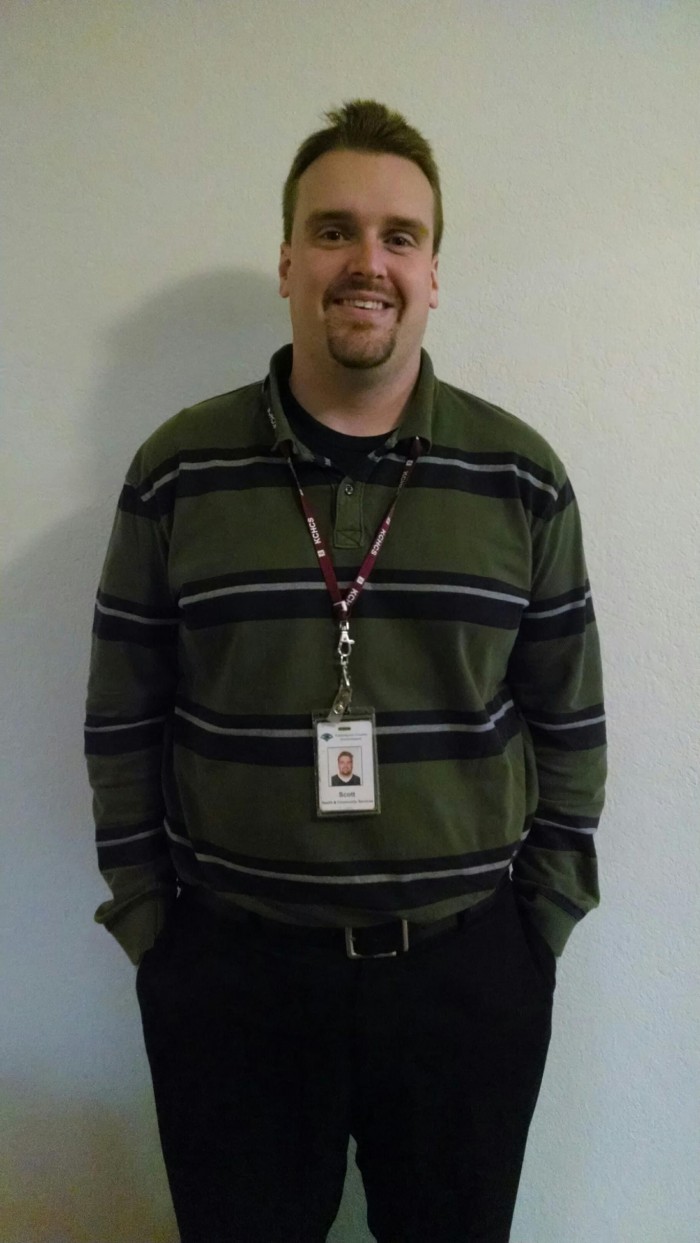Scott Janssen, who is a policy analyst with the Center for Health Equity and a member of the Kalamazoo community, has been a trained enrollment counselor since the beginning of March, 2014. As an enrollment counselor, he plays a vital role in making healthcare coverage more accessible in Kalamazoo by assisting individuals who are navigating the complicated process of attaining new healthcare coverage with the Affordable Care Act. He has attended numerous enrollment events organized by Bronson hospital and Enroll Kalamazoo County, where he has assisted with both the ACA marketplace applications and the Healthy Michigan applications.
Being an enrollment counselor has challenging components that necessitate a great deal of patience, such as working around technological glitches and working through bureaucratic processes. Despite these challenges, Scott is optimistic about the Affordable Care Act, and believes it will change the face of access to healthcare coverage in Kalamazoo. He sees firsthand how access to affordable healthcare can change the lives of individuals, and shared a story that captures the most rewarding elements of being an enrollment counselor. He explained, “I worked with a woman who had to come in three times because of glitches, and by the third try, she was very frustrated and unhappy. When it finally worked and she was going to have health insurance, she started to sob and explained; ‘I just never thought I could have insurance that great.’ Everything was worth it for that moment right there.â€
Additionally, Scott believes that the ACA will make the Kalamazoo community healthier because people with health insurance will not wait as long to visit a doctor when they have a problem. When one does not have insurance, costly medical bills can deter them from visiting a doctor until a problem worsens, which has serious health and economic consequences. He believes that access to health care coverage is an important part of making Kalamazoo healthier, however there are many other inequities that must be addressed to achieve this goal, as health inequity is about “the big pictureâ€. He works with the Center for Health Equity and believes in a holistic approach to making communities healthier. Scott explained that there are various strategies to improving health, including increased access to education and access to safe, affordable housing.
Upon outlining strategies for improving health in Kalamazoo, Scott then shared his vision for future health care reform in the United States. He imagines a world where policy is culturally competent and serves the needs of the people it impacts. He also believes that it is important for health care providers to understand health inequity, so that they can better relate to their patients with sympathy, as opposed to frustration. He shared a story about a doctor that became frustrated with a patient who had diabetes, because the patient was not eating healthy food to manage diabetes. Perhaps this patient did not have access to healthy foods, however the doctor blamed the patient for “making poor choicesâ€. To avoid this situation, health care providers should be required to take courses on health inequity, so they can better understand the social, political, and economic landscape that affects access to health. Finally, Scott believes that, “Health equity is about reimagining the American Dream, so that it encompasses a nation where everyone, regardless of race, ethnicity, gender, or class can maintain and access healthâ€. He is hopeful that this dream can be attained because the American Dream redefines itself over and over with each generation.
